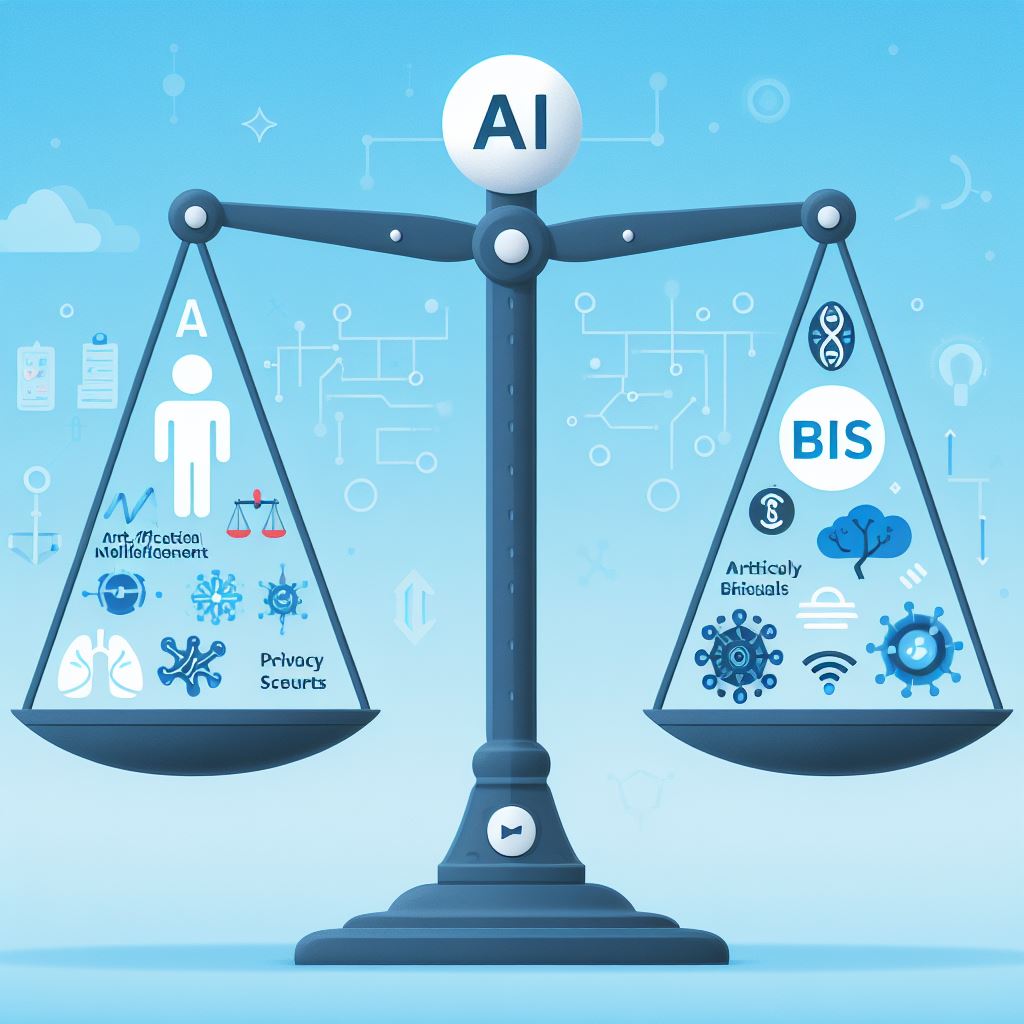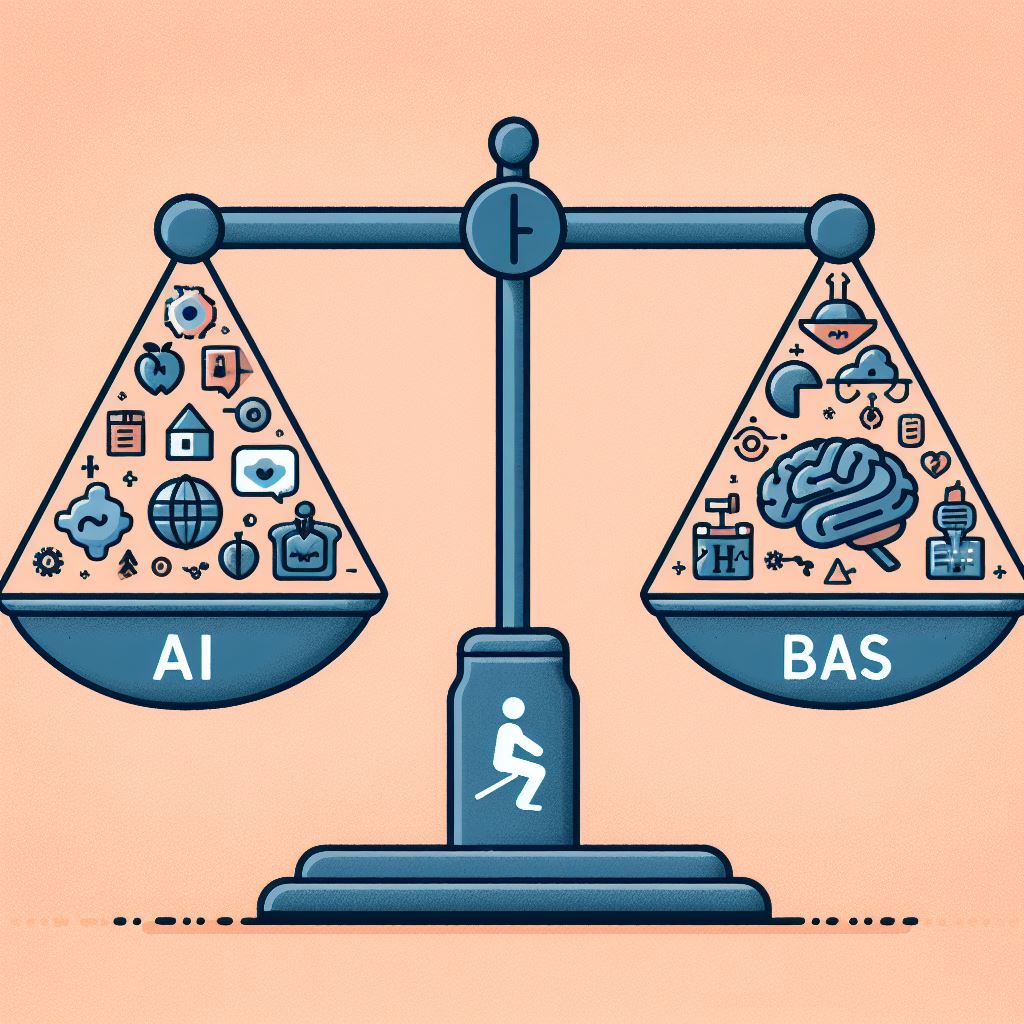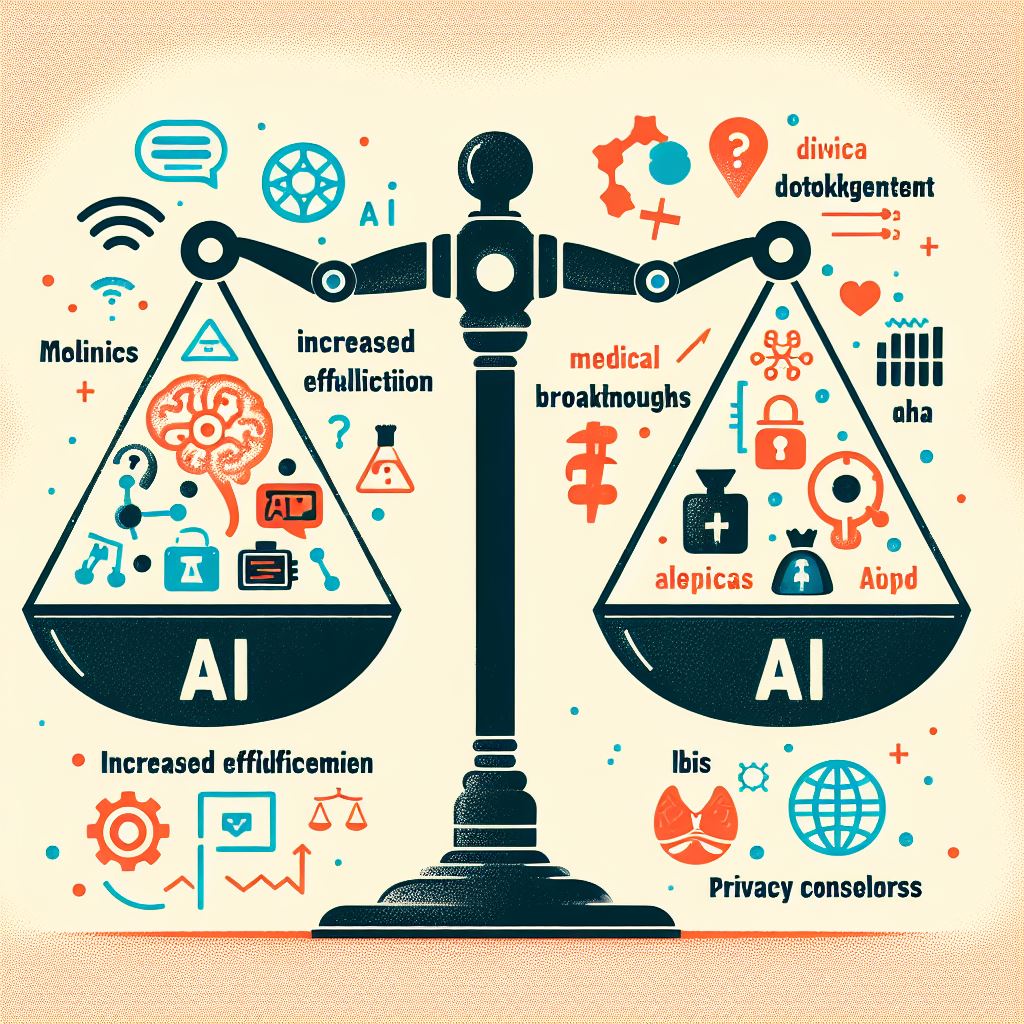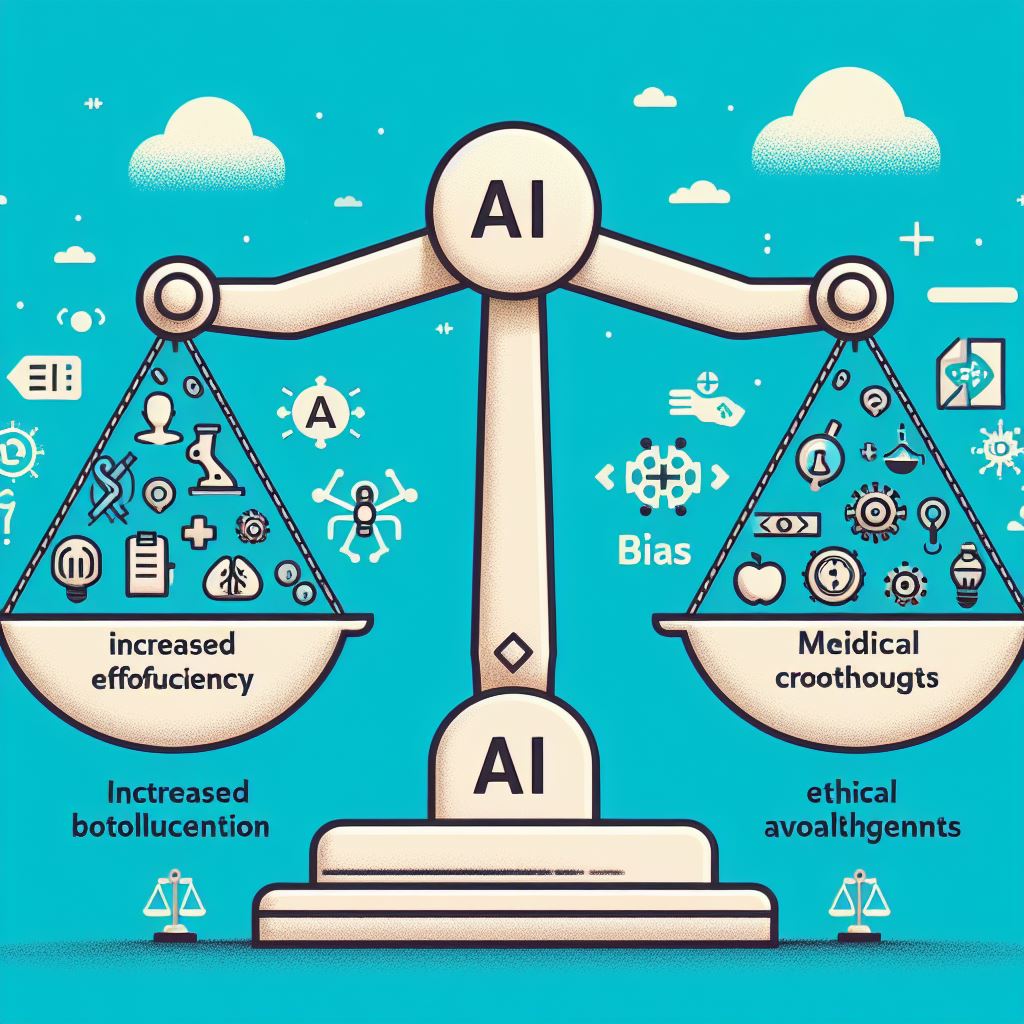人工智慧(AI)產業的發展帶來許多利與弊。
人工智慧(AI)產業的發展帶來許多利與弊:
利:
自動化和效率提升:AI技術使得許多重複性、繁瑣的任務可以自動化,從而提高生產力和效率。這對企業和組織來說是一個巨大的好處,可以節省時間和成本。
創新和新產品的推出:AI技術的發展推動許多新的產品和服務的出現,包括智能家居設備、自動駕駛汽車、智能醫療設備等。這些創新對消費者和企業都有很大的吸引力。
提升生活品質:AI技術可以應用於各個領域,包括醫療保健、教育、交通、環境保護等,從而提升人們的生活品質。例如,智能醫療設備可以提高醫療服務的效率和準確性,智能交通系統可以減少交通擁堵和事故。
經濟增長和就業機會:AI產業的發展帶動相關產業的增長,創造大量的就業機會,包括軟件開發人員、數據科學家、機器學習工程師等。
弊:
就業影響和失業擔憂:隨著自動化和智能化的普及,一些傳統的工作可能會被取代,導致部分人員失業或就業前景不明朗。這可能會導致社會不穩定和就業市場的壓力。
隱私和安全問題:AI技術需要大量的數據來訓練模型和算法,這可能涉及到個人隱私和數據安全的問題。如果這些數據被不當使用或遭到破壞,可能會對個人和組織造成嚴重的損害。
社會不平等:AI技術的發展可能會加劇社會的不平等現象。那些擁有更多資源和技術的人可能會更容易從AI的發展中受益,而那些缺乏資源和技術的人可能會被邊緣化。
倫理和道德問題:AI技術的應用涉及到許多倫理和道德問題,例如自動駕駛汽車的道德抉擇、人工智慧對於就業和社會的長遠影響等。這些問題需要社會各界進行深入的討論和思考。
The development of the artificial intelligence (AI) industry brings both benefits and drawbacks:
Benefits:
Automation and efficiency improvement: AI technology enables the automation of many repetitive and tedious tasks, thereby enhancing productivity and efficiency. This is a significant advantage for businesses and organizations, saving time and costs. Innovation and introduction of new products: The development of AI technology drives the emergence of many new products and services, including smart home devices, autonomous vehicles, intelligent medical equipment, etc. These innovations are highly attractive to both consumers and businesses. Improved quality of life: AI technology can be applied in various fields, including healthcare, education, transportation, environmental protection, etc., thereby enhancing people's quality of life. For example, smart medical equipment can improve the efficiency and accuracy of medical services, while intelligent transportation systems can reduce traffic congestion and accidents.
Economic growth and job opportunities: The development of the AI industry drives the growth of related industries, creating a large number of job opportunities, including software developers, data scientists, machine learning engineers, etc.
Drawbacks:
Employment impact and unemployment concerns: With the proliferation of automation and intelligence, some traditional jobs may be replaced, leading to unemployment or uncertain job prospects for some individuals. This may cause social instability and pressure on the job market. Privacy and security issues: AI technology requires a large amount of data to train models and algorithms, which may involve issues of personal privacy and data security. If this data is improperly used or compromised, it may cause serious harm to individuals and organizations.
Social inequality: The development of AI technology may exacerbate social inequality. Those with more resources and technical expertise may be more likely to benefit from AI development, while those lacking resources and technical skills may be marginalized.
Ethical and moral issues: The application of AI technology involves many ethical and moral issues, such as the ethical choices of autonomous vehicles, the long-term impact of artificial intelligence on employment and society, etc. These issues require in-depth discussion and consideration from various sectors of society.




照片:DALLE3
- 1
- 2
- 3
- 4
